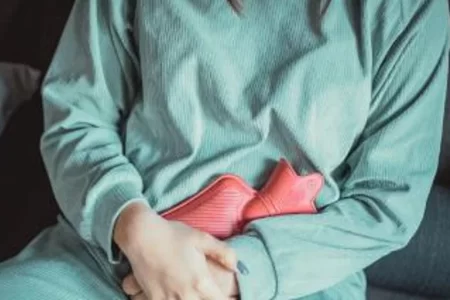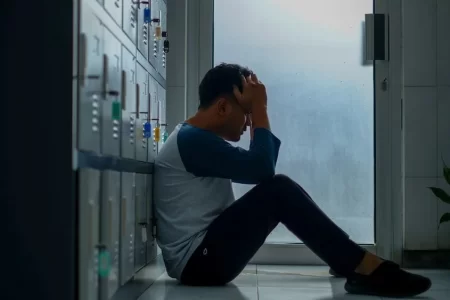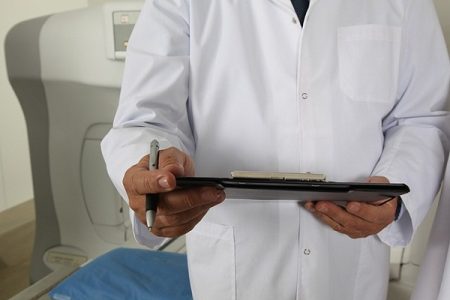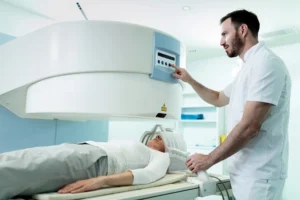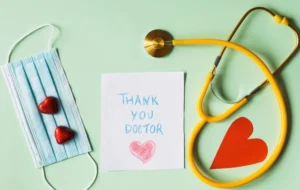Itchy Hemorrhoids: What Causes Itchy Piles?
- Updated on: Jun 26, 2024
- 6 min Read
- Published on Feb 20, 2020
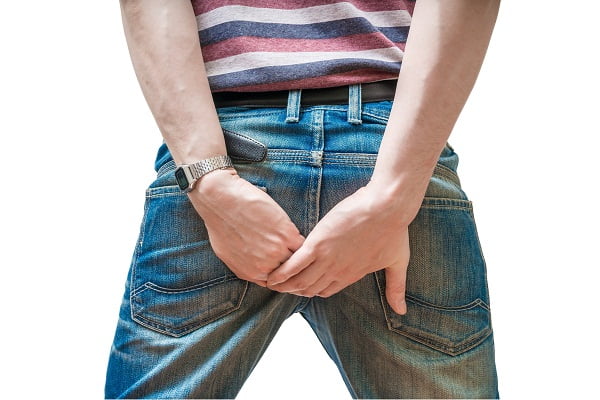

Do hemorrhoids itch?
Hemorrhoids are swollen veins present around the anus and lower rectum region. They are commonly known as piles. Hemorrhoids are differentiated on the basis of their location. Internal hemorrhoids are found within the anus or rectum region and external hemorrhoids are located outside the anus.
Common symptoms experienced by hemorrhoid patients include pain, severe itching and difficulty while sitting and lying down. You may experience extreme itchiness around the anus region and itchy and painful lumps in the anus if you have hemorrhoids.
Why do hemorrhoids itch? What causes hemorrhoids to itch?
There are a large number of reasons which can lead to an itchy hemorrhoid. These include:
Biological Causes
The biological cause of severe itching in hemorrhoids is due to inflammation. An inflamed area contains large number of white blood cells and fluid rich in protein. Due to excessive accumulation of cells and fluids in a small area, your body tends to stretch and you may experience itchy piles.
Rubbing
While sleeping, you are less careful with your hemorrhoid lumps. These lumps may rub against the bed sheets or against one another. This can lead to itchy piles and other severe symptoms of hemorrhoids.
Repeated cleaning, wiping, scratching and use of harsh cleaners can increases itchiness in your hemorrhoids.
Defecation
During piles, you may face problems while passing stool. You need to apply large amount pressure on your rectum during a bowel movement. This can either lead to blockage of stool in rectum or improper cleaning of the anus region.
The presence of stool in the anus region can aggravate the condition at night and you may experience itchy hemorrhoids and an itchy bottom.
Production of Mucus
If you are suffering from internal hemorrhoids, the lumps in the anus region may rub each other. This can lead to production of large amount of mucus by hemorrhoids, which may leak from the lumps and cause dryness of the surrounding skin. Due to dryness of the skin, you may experience itchy piles.
More: How Do You Get Hemorrhoids?
More: Thrombosed Hemorrhoid (Thrombosed Piles)
How can you stop hemorrhoid itching?
Itchy hemorrhoids can be effectively treated at home by performing simple home remedies. Some common hemorrhoid itch relief techniques are as follows:
Good hygiene practices
You should properly clean your anus region after every bowel movement to avoid occurrence of itchy piles. If your anus region is not clean, it can lead to build-up of moisture and cause itchiness. Good hygiene practices are the most beneficial techniques to reduce large number of hemorrhoid symptoms.
Moisture development leads to itchy hemorrhoids at night. You should, therefore, clean your anus region effectively before going to bed at night. After cleaning the anus with water, make sure to dry it completely to avoid discomfort while sleeping.
Certain measures which can be taken while cleaning the anus region include:
- You should carefully dry the region surrounding the hemorrhoid lumps
- If you harshly rub the hemorrhoid or the surrounding region, it can lead to a large number of complications. You should pat dry the area only, without rubbing it with a cloth or tissue.
- You can even dry the anus region using a blow dryer at marginal temperature.
- You should not use extreme hot and cold water to clean the anus region. You can use normal temperature or luke warm water to clean the anus after every bowel movement.
- You should not use scented soaps or cleansing lotions to clean the anus region. They contain harmful chemicals which can damage the skin and further lead to severe complications.
Mild cleansing soaps
- You should use mild cleansing soap to clean the anus region.
- Make sure to wash all the soap effectively before going to sleep
- You should only use colorless toilet paper to dry the anus region, otherwise it can worsen your condition
- If you experience server itchy piles due to moisture development, you can insert cotton pads inside your underpants. They are highly effective in reducing the dampness in the anus region.
- You should not wear tight cloths, especially tight underpants.
- Your doctor may recommend use of cotton underpants, as they are extremely comfortable and as to allow air to pass through.
- Hydrocortisone containing over-the-counter wipes is effective against external hemorrhoids. But, they should not be used for more than a week.
Green Tea Bags
Use of green tea bags is an effective measure to reduce itchy piles.
- You can place these tea bags in warm water for about 2 minutes. Then compresses them and place it over the area of itchy hemorrhoid. This can provide instant relief. Read about reliving pain from hemorrhoids.
- You can also try applying zinc oxide powder to provide relief from itchy hemorrhoids.
- You should avoid consumption of certain antibiotics, colchicines, quinidine, mineral oil and caffeine, to prevent occurrence of itchy piles. Read about Medicines for Hemorrhoids.
- You should avoid spicy foods, carbonated beverages, tomatoes, chocolate, milk products, vitamin c and citrus juice, as these food products can increase itchiness and aggravate your condition.
There are certain specific hemorrhoid medications which can help reduce signs and symptoms of piles. They can also provide relief from itchy piles and reduce their onset in near future. Therefore, you should regularly consume these medications to prevent occurrence of hemorrhoid lumps.
Hemorrhoid Itch Cream
There are a large number of gels and lotions available in the market which can provide relief from itchy hemorrhoids. Gels and hemorrhoid itch creams which contain steroids should only be used upon recommendation of your doctor.
You can even try using baby teething lotions, as they work as a mild anesthetic and help you deal efficiently with itchy piles.
You can use aloe Vera gel for the treatment of itchy hemorrhoids. They are the best available natural sources and also have antiseptic properties.
You should avoid witch-hazel or alcohol-based cleansing pads, harsh soap and formaldehyde impregnated tissue. These products cause more irritation and thereby worsen the situation.
Essential oils
There are a large number of essential oils which are highly effective against itchy piles.
If you are suffering from external hemorrhoids, you can apply a mixture of essential oil with one of the base oil such as almond oil on your sores, to reduce itchiness in your hemorrhoids.
Lavender oil is especially used for the treatment of internal hemorrhoids. You can request your partner to apply oil on your internal sores. Make sure that before applying lavender oil on your sores; you wash your hands to avoid risk of infection in the anus region.
Sitz bath
Sitz bath is one of the most effective home remedies which helps in reducing hemorrhoid symptoms.
- You should sit in warm water for 10-15 minutes, three times in a day. It provides instant relief
- You should take a sitz bath after every bowel movement
- You should avoid bubble baths till your sores are completely reduced
- You can try applying ice on the anus region to provide instant relief from itchy bottom.
Warm and cold compress
Warm and cold compress involve application of warm and cold compress near the hemorrhoid lumps. You should first apply warm compress on the hemorrhoid for about 20 minutes and then replace it with the cold compress. This method can reduce itchiness in your hemorrhoids.
More: Do Hemorrhoids Go Away On Their Own?
More: How Long Do Hemorrhoids Last?
Do internal hemorrhoids itch?
If you suffer from prolapsed internal hemorrhoids, you may experience severe itchiness in your piles. When an internal hemorrhoid slips down through the anus, it can release mucus and cause irritation on the sensitive skin near the hemorrhoid lump. Such a condition leads to experience of activity-limited itchy piles.
If the hemorrhoids are prolapsed, their surrounding mucosa layer produces excess mucus and irritates the skin. Inflamed internal hemorrhoid can also lead to itchy piles.
There are certain non-surgical and surgical treatments available to cure prolapsed internal hemorrhoids. The treatment of hemorrhoids can also lead to reduction in onset of hemorrhoid symptoms.
Do external hemorrhoids itch?
If you suffer from external hemorrhoids, you may experience mild itchiness near your hemorrhoid lumps.
Why do hemorrhoids itch at night?
Many hemorrhoid patients experience severe itchiness in their hemorrhoids at night. The most common causes of itchy hemorrhoids at night-time are as follows:
- If you sit or sleep in the same position for a very long time, it can lead to itchy piles.
- When moisture content increases in the anal region, it leads to itchy hemorrhoids. While sleeping, moisture content increase and causes an itchy bottom.
Best sleeping position to prevent itchy hemorrhoids
Hemorrhoids itch at night and create a huge discomfort while sleeping. You can try these simple sleeping positions to reduce the discomfort due to itchy piles:
- If you are suffering from piles, you should not apply any pressure on your anus and rectal region. It can worsen your condition.
- It is advisable not to sleep on your back. Sleeping on your back will lead to accumulation of your whole weight at a single point and create a lot of pressure on the anus region.
- You can try any relaxing activity before going to sleep such as reading books, watching TV. Relaxing activity helps to fall asleep easily and provide a deep sound sleep.
- The best sleeping position to prevent itchy hemorrhoids is sleeping on your stomach.
- You can try placing a pillow near your hip region. This can elevate your butt area and reduce the pressure on the rectal and anus region. This position insures that you do not roll over and hurt yourself.
- If sleeping on your stomach is creating some discomfort, you can try sleeping on any of your sides.
- Those women who are pregnant and suffering from hemorrhoids should not sleep on their left side. It is preferred to sleep on their right side. Read about hemorrhoids in pregnancy.
More: Why Do Hemorrhoids Bleed For Many Weeks?
Do hemorrhoids itch when healing?
It is commonly believed that itchiness is one of the most common signs of healing. But itchiness also indicates increase in inflammation in the anus region.
To identify the cause of itchiness, you should consult a doctor or an expert health care practitioner. It is difficult to make a diagnosis for the exact reason of itchy hemorrhoids on your own.





